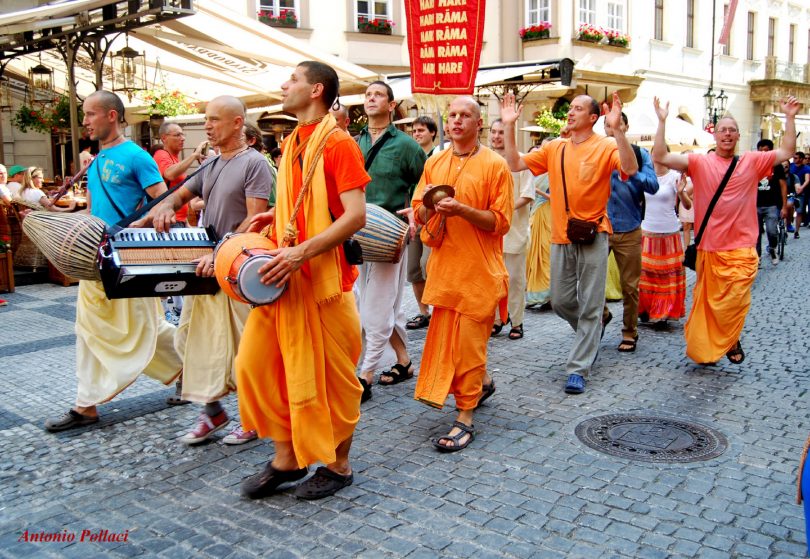Question: In many places in the Srimad Bhagavatam and in other scriptures the word “brahmana” is mentioned but not Vaishnava. Lord Sri Krishna also addresses as brahmanas & even it is said Om Namo Brahmanya Devaya. So this is my question: why does Lord Krishna refer to Brahmanas but not Vaishnavas?
Answer by Romapada Swami: The Supreme Lord very much favors brahminical culture because it is the basis of progress in human society.
Progressive human civilization is based on brahminical culture, God consciousness and protection of cows. Simply by properly respecting and protecting genuine brahmanas and the cows, human society can become perfectly prosperous and progressive.
Human form of life is valuable only when qualified by brahminical culture, as it presents the only chance to obtain knowledge of transcendence. Brahminical culture means cultivation of truthfulness, sense control, forbearance, simplicity, full knowledge and full faith in God; when Krishna refers to ‘brahmana’ it indicates one who is cultivating these qualities towards self-realization. In this sense, brahmana actually refers to a Devotee of Krishna, i.e. Vishnu or Krishna is the worshipable Deity of a true brahmana. By supporting this brahminical culture, and persons dedicated to culturing these qualities, the entire population, including the animals and plants are protected and benefited.
Srila Prabhupada writes in this regard: “brahma janatiti brahmanah: A brahmana is one who has understood Brahman, and a Vaishnava is one who has understood the personality of Godhead. Brahman realization is the beginning of realization of the Personality of Godhead. One who understands the Personality of Godhead also knows the impersonal feature of the Supreme, which is Brahman. Therefore one who becomes a Vaishnava is already a brahmana. It should be noted that the glories of the brahmana described in this chapter (of Bhagavatam) by the Lord Himself refer to His devotee-brahmana, or the Vaishnava. It should never be misunderstood that the so-called brahmanas who are born in brahmana families but have no brahminical qualifications are referred to in this connection.” (Cf. SB 3.16.4 p)
“Birthright is not everything, for one still has to attain the brahminical qualifications for himself. As soon as one becomes proud of his birth as the son of a brahmana and neglects to acquire the qualifications of a real brahmana, he at once becomes degraded and falls from the path of self-realization. Thus his life’s mission as a human being is defeated.”
“A vipra, or a qualified brahmana, thus realizes the Absolute and makes further progress in spiritual life until he reaches the Vaishnava stage. The Vaishnava stage is the postgraduate status of a brahmana. A progressive brahmana must necessarily become a Vaishnava, for a Vaishnava is a self-realized, learned brahmana… Ultimately the aim of varnashrama-dharma is to turn a crude man into a pure devotee of the Lord, or a Vaishnava.” (Cf. SB 1.2.2 p)
Summary:
In his mature stage, a brahmana is a vaisnava; or brahminism is included in a vaishnava; or a true Vaishnava is already a brahmana.
The above statement is elaborately discussed by Srila Bhaktisiddhanta Saraswati Thakur in his lengthy essay entitled “Brahmanism and Vaisnavism”.
The Lord teaches by His own example how much genuine brahmanas and Vaishnavas deserve to respected.







